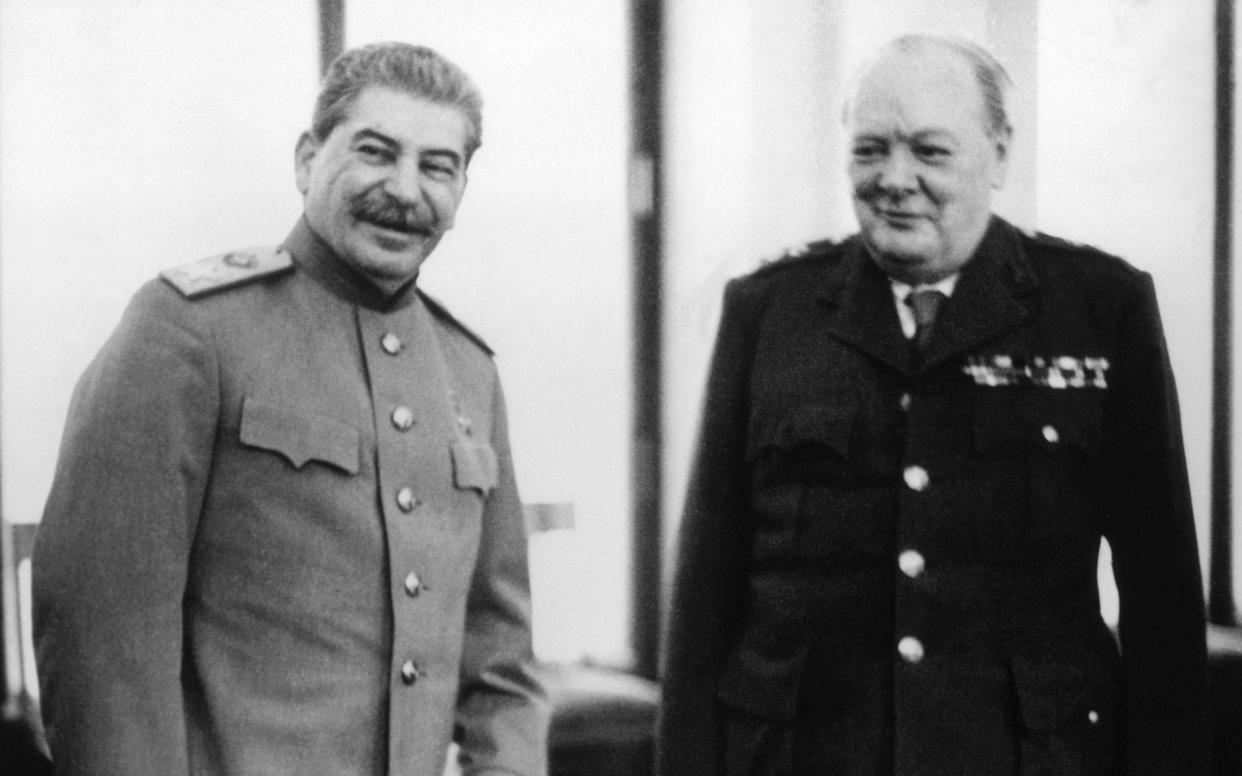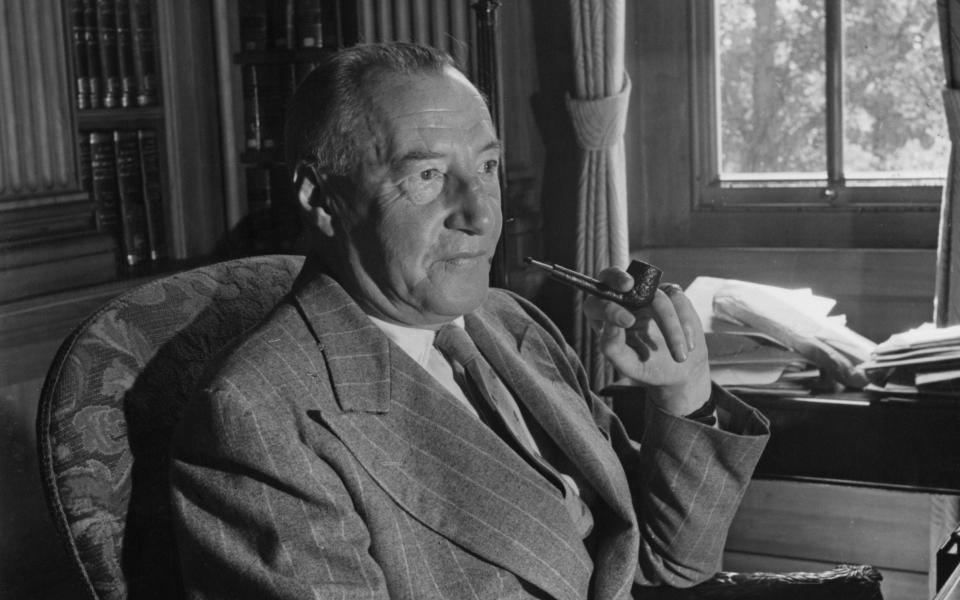The danger-loving bisexual diplomat who tamed Joseph Stalin

- Oops!Something went wrong.Please try again later.
A murderous dictator, a megalomaniac, a psychopath – I’ve heard Joseph Stalin described as many things but never as a pet possum. That’s what Archibald Clark Kerr, Britain’s Ambassador to the Soviet Union from 1942 to 1946, saw in the Soviet leader: “a possum you would get very fond of, against your better judgement, but would have to keep a sharp eye on, lest he nip you in the buttocks out of sheer mischief”.
Archie, as the maverick diplomat was called by everyone, met Stalin in March 1942. Smoking pipes with him in his private bunker while German bombers flew over Moscow, he noticed how the dictator’s face permanently “seemed to droop… until something pleases him, and then the whole thing tightens up and crinkles into the most engaging and disarming smile.” Chatting about women, sex, tobacco and the war, the British diplomat and the Soviet dictator struck a bond – “two old rogues” together, as Archie put it.
This makes for uncomfortable reading today. Stalin was responsible for millions of deaths. But he was also Hitler’s mortal enemy, engaged in an existential fight against the might of a seemingly unstoppable German army. This made Stalin an indispensable if unpalatable ally. Churchill was bent on saving the Soviet Union, which he had once vowed to strangle at birth. Needs must, or as he put it: “If Hitler invaded Hell I would make at least a favourable reference to the Devil in the House of Commons.”
But how to forge an alliance with an enigmatic and deeply distrustful dictator? People like Clark Kerr were the answer: unconventional, likeable and so interesting to talk to that even paranoid Stalin would let his guard down. Archie was a tanned, adventurous bisexual who had previously been the Ambassador to war-torn China where he raised eyebrows by swimming in the Yangtze River despite unpredictable currents and the risk of getting shot at by Japanese warplanes. He recklessly courted danger, scandal and the attention of the world’s most powerful men. This made him a controversial figure even at the time but also an extremely effective diplomat. When he left China in 1942, the country’s premier Chiang Kai-shek threw him a farewell banquet and hailed his miraculous diplomatic achievements. He was just the man to send to Moscow.
The diplomatic dance that kept the Soviet Union, Britain and America in sync is the subject of the prolific historian Giles Milton’s new book The Stalin Affair. Delivered with the flamboyance that has become Milton’s trademark, it features a sparkling cast of chancers, charmers, egotists and eccentrics with a ringside seat to world events.

We watch Churchill’s careful fostering of transatlantic ties through the eyes of his teenage daughter Mary, who kept an intimate diary. Wide-eyed, she looked on as her Papa dined with his “good-looking” American guests, letting the magnitude of what was at stake sink in, “for many billions of destinies may perhaps hang on this new axis – this Anglo-American-American-Anglo friendship”.
One of these “good-looking” guests was Averell Harriman, the fourth richest man in America and the president’s representative in London. His unusual amiability, “all-American smile” and close ties to Franklin Roosevelt made him the ideal candidate to develop close relationships with both Churchill and Stalin. That was not an easy job. Stalin was convinced the West revelled in his country’s death struggle with Nazi Germany. He was so depressed that he exclaimed, “Lenin founded our state, and we’ve f--ed it up.”
But Harriman found a way through. Together with Churchill’s delegate, the media mogul Lord Beaverbrook, he travelled to Moscow in September 1941 where the pair of multimillionaires bantered with Stalin. They gossipped about their respective ambassadors, delighted in the recent incarceration of Hitler’s deputy Rudolf Hess and talked about military aid for the Soviet Union. Soon Stalin leaped from his chair and cried out: “Now we shall win the war!”
But the worst of the war was still ahead, years that would strain the uneasy alliance to breaking point. Milton effortlessly moves between high politics and the private world of those who shaped them. His fast-paced tale is full of surprising details, reminding us that even the most momentous history is the sum of decisions made by people.
The Stalin Affair is published by John Murray at £25. To order your copy for £19.99, call 0808 196 6794 or visit Telegraph Books
Katja Hoyer’s latest book is Beyond the Wall: East Germany, 1949-1990

